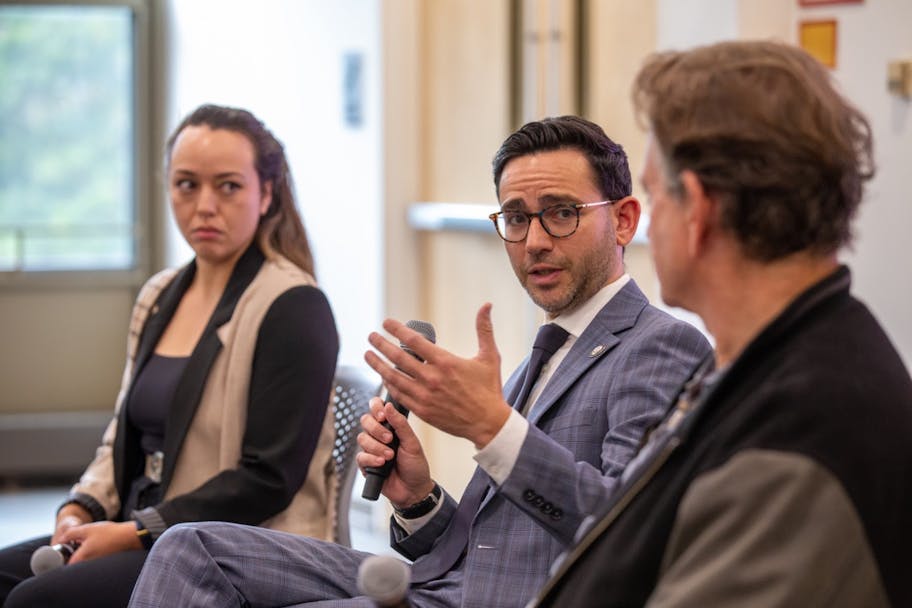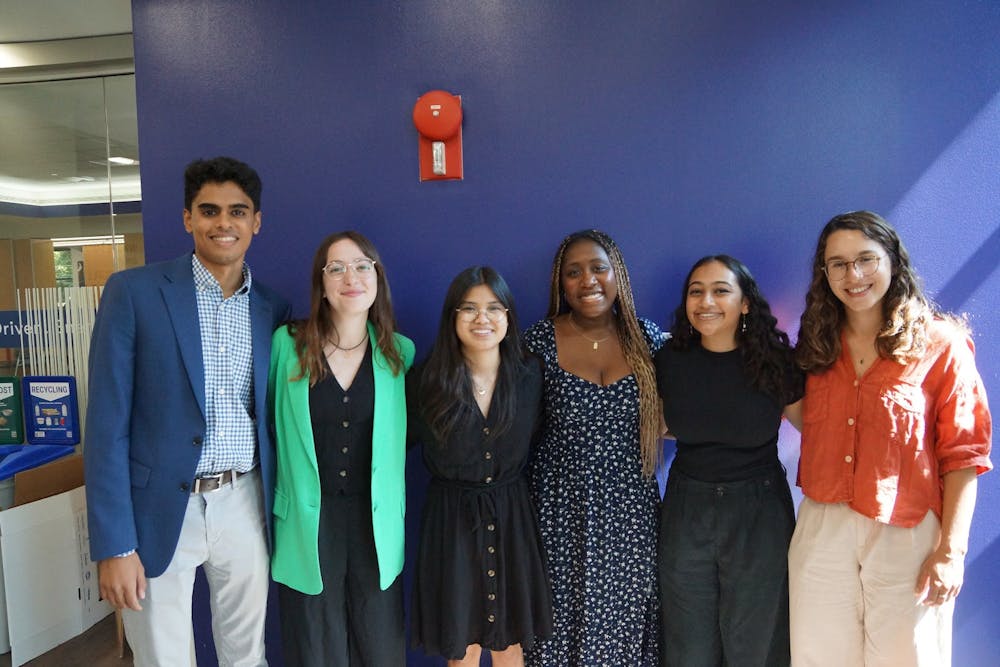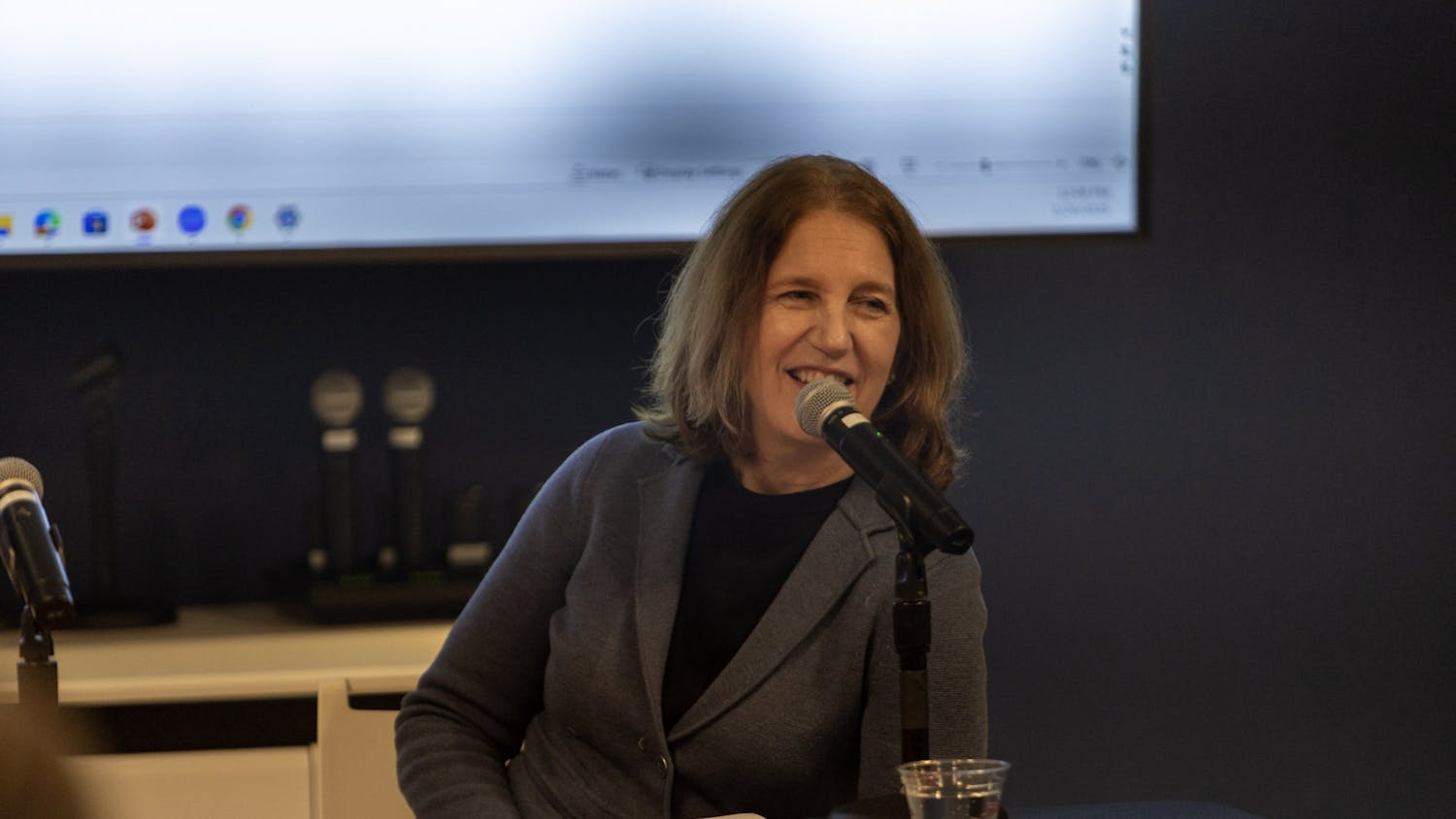Clicking “allow” for a website’s cookies is a daily annoyance for most online users. Instagram’s new terms and conditions are often just a long scroll youngpeople quickly accept to get back to sharing their day with friends. Small, seemingly harmless acts of granting permission to online platforms come across as routine necessities, but few understand how much access they are granting with that one “yes.”
Design It For Us, a youth-led coalition aiming to improve online privacy, hosted a panel Sept. 11 in the Mary Graydon Center with experts who are focused on addressing just that — what the daily “I agree,” “yes” and “allow” really mean for young people.
The panel featured Samuel Levine, the director of the Bureau of Consumer Protection at the Federal Trade Commission, Samantha Bradshaw, Ph.D., assistant professor of Foreign Policy & Global Security at American University and Marc Rotenberg, the executive director and founder of the Center for AI and Digital Policy.

“D.C. is just this hub for political thought, and this campus is an extremely politically active place,” said Zamaan Qureshi, the co-chair of Design It For Us and 2024 graduate from the School of International Service and School of Public Affairs, in an interview with The Eagle. “I certainly experienced that when I was here. Bringing a star-studded group of panelists from the D.C. area was a big draw, and it just made sense to kick off the tour from here.”
According to their website, Design It For Us began in 2023 with the incentive to support and pass the bipartisan California Age Appropriate Design Code, which provides clear privacy settings and forces companies to consider the age of their users. Their campaign helped secure its unanimous passage.
Now, Design It For Us is focusing on creating various pathways for online safety advocacy by bringing local panelists well-versed in technology-related topics to colleges across the country.
“I don’t think it’s just user safety — we are all the recipients of whatever algorithms are curated for us,” Qureshi said.
During the panel, the experts shared their knowledge and experiences aboutGen Z and Gen Alpha online.
“I grew up online, I’m only 23, and so I feel like I’ve seen the way these platforms really transform,” Ellisya Lindsey, the communications associate at Accountable Tech, said. “I remember when I was younger, it was posting pictures of One Direction, and it has spiraled into something that is much more addictive and harmful.”
The panel was focused on improving online safety for young people, and each panelist had a unique opinion on how youth should be protected.
“I’m very impressed by the work of Design It For Us,” Rotenberg said. “The mission, the leadership, the people who are involved — we need more young people making the rules for the governance of internet companies and services. I’m actually an optimist — I think things will improve over the next five years.”
Levine provided a unique perspective on current legislation regarding online protection services, and what the Federal Trade Commission has discussed regarding the topic.
“The great thing about consumer protection tools is that they’re really flexible,” Levine said. “Congress gave us the authority in 1938 to challenge practices that were ‘unfair’ or ‘deceptive.’ We used that authority to challenge deceptive radio ads, television ads, and as technology advances and as new practices emerge, we’ve been able to adapt those tools to contemporary needs.”
Although the FTC regularly provides public advice on privacy protection strategies and setting changes, there is no protection service that is currently able to promise full security for users.
“My biggest criticism is that Congress is overdue in passing comprehensive privacy legislation,” Levine said. “The FTC has been calling on Congress to do so since 2012, and we’ve seen a lot of momentum over the last two years, but we are really the last rich country in the world to not have comprehensive legislation.”
The event unintentionally, yet relevantly, took place on 9/11, a date that historically contributed to a large increase and allowance of government surveillance with the resulting Patriot Act. The speakers briefly discussed the significance of 9/11 in the conversation around online privacy.
“Companies lie to people,” Levine said. “Companies will say they’re collecting information for one purpose and use it for another and [there are] data breaches. For groups that worry about being profiled, for groups that worry about facing stigma and discrimination and other harms —I think those fears are real.”
Levine uplifted youth voices, and encouraged more young people to take action and fight for more online security and transparency.
“Young people need to realize their power,” Levine said. “I would not discount the ability of young people to effectuate political change. We already see it around social media policy.”
This article was edited by Payton Anderson, Tyler Davis and Abigail Turner. Copy editing done by Luna Jinks and Sabine Kanter-Huchting.





